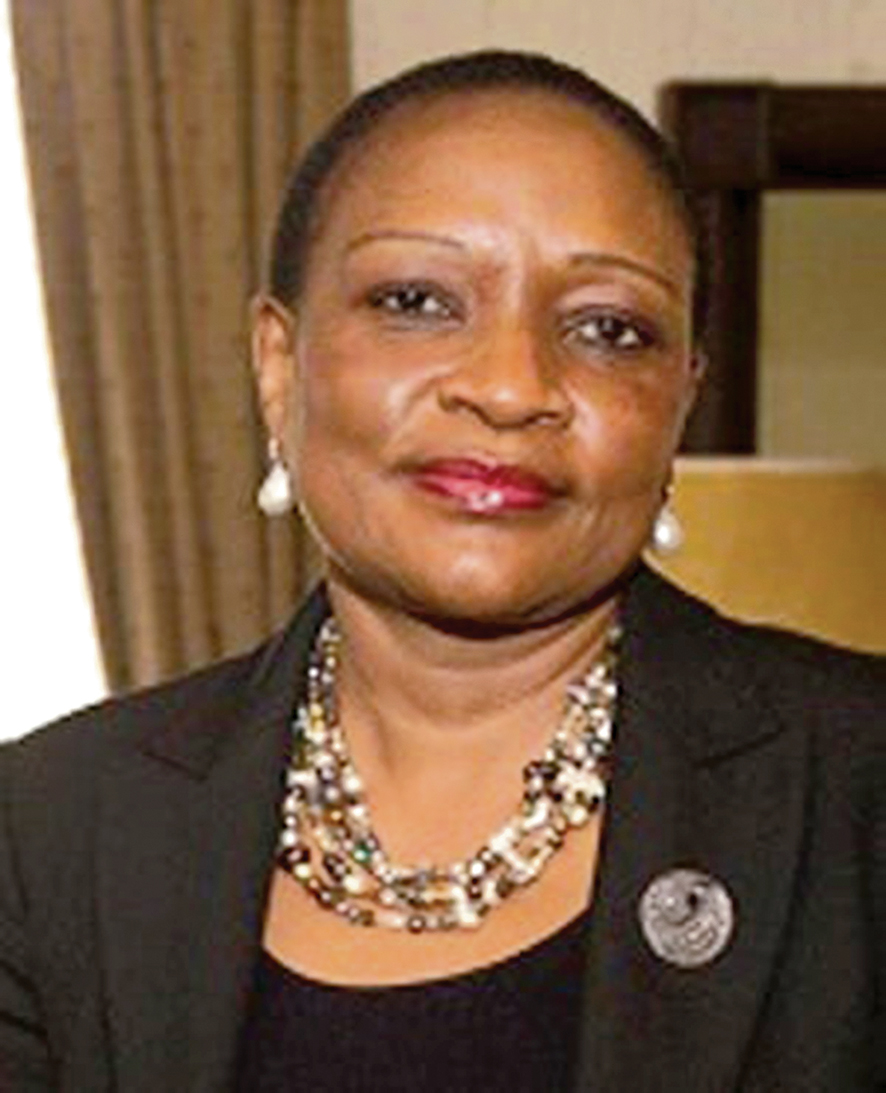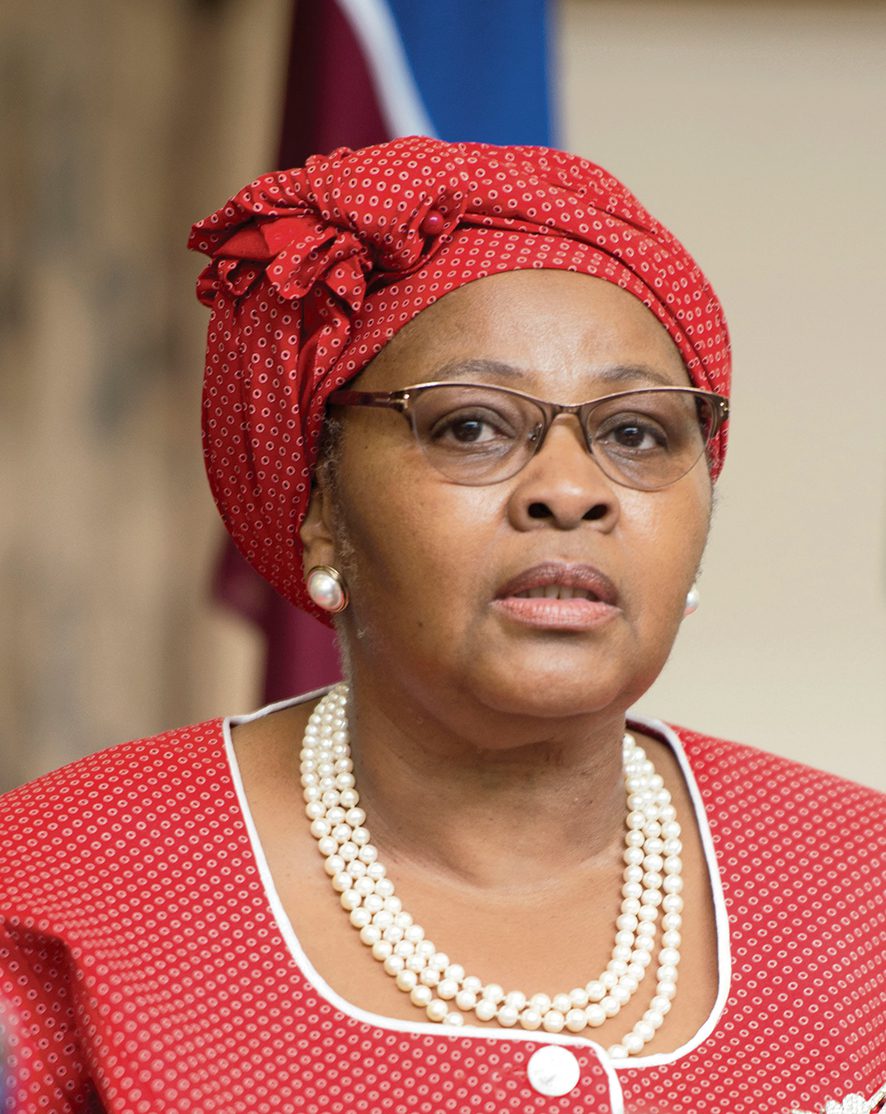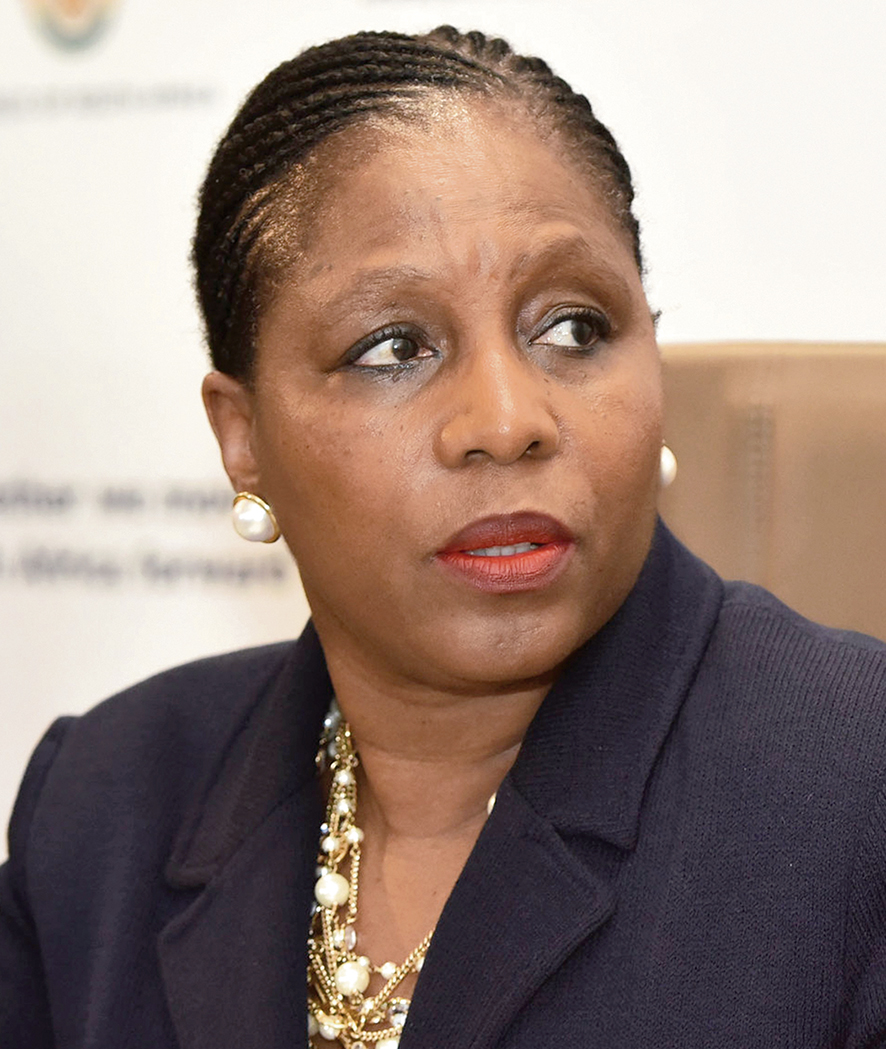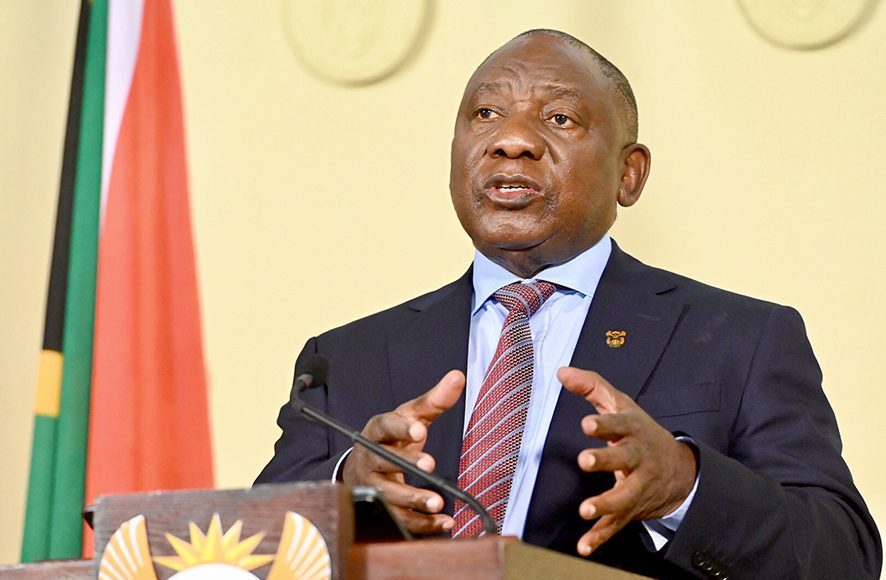Johannesburg – The denial of a top security clearance certificate for secretary for defence Sonto Kudjoe has lifted the lid on the dire straits of the country’s vetting process in the security cluster and government institutions, with fears that the situation poses a threat to national security.
Sunday World can reveal that officials not qualified to lay their hands on the country’s intelligence and top secrets are doing so, partly due to the backlog of vetting by the defunct State Security Agency (SSA), whose functions were recently centralised into the Presidency by President Cyril Ramaphosa.
It has emerged that the SSA’s former domestic head, Sam Muofhe, denied Kudjoe, a former director-general of the agency, a security clearance certificate, saying he had opened a case against her.
Kudjoe left the SSA in August 2016 and joined the Department of Defence in July 2020 as the institution’s accounting officer.
Her security clearance, which she received while at the SSA, expired last year.
Vetting, which normally takes three to four months, includes a complete check of a person’s background and that of their family, criminal record, financial state, academic record, social networks and political affiliations, among others.

A person with security clearance has access to classified information at different levels, top secret being the highest.
Ministers, their deputies and director-generals undergo vetting.
In 2012, the government decided that all public officials involved in supply chain management should also be vetted as part of efforts to fight corruption.
Muofhe caught former defence and military veterans minister Nosiviwe Mapisa-Nqakula by surprise when he wrote to her about a fortnight ago, informing her that Kudjoe had failed a security test.
A source close to Muofhe confirmed that he had denied Kudjoe a security clearance and communicated this to Mapisa-Nqakula, who was recently elected Speaker of the National Assembly.
“Muofhe opened a case [in 2019] against Kudjoe, so he couldn’t be the one who then grants her a security clearance certificate,” the source said, speaking on condition of anonymity.
Defence spokesperson Siphiwe Dlamini confirmed that Mapisa-Nqakula had received a letter from Muofhe regarding Kudjoe’s security assessment.

“As far as I am aware, nobody contacted ambassador Kudjoe about that [denial of security clearance certificate] nor the department until last week when a letter was received by the outgoing minister of defence and military veterans [Mapisa-Nqakula].
No one, including the person concerned, knew about that,” Dlamini said. “ Kudjoe is following up on the matter to get clarity from the author of the letter and the department concerned.”
Dlamini said Kudjoe had a five-year top security clearance when she applied for the job, which includes a critical function: budget allocation.
“After joining the Department of Defence, she started the process of renewing the security clearance, which was due to expire, and that process is still underway. It must be emphasised that the renewal process will take long due to the huge backlog of the vetting process experienced by the whole of government,” he said.
A senior government leader with intimate knowledge of the vetting process made a startling claim regarding the reasons behind the backlog of vetting, saying a third of the SSA members themselves were not vetted or have not renewed their certificates.
“More than a third of SSA employees have no security clearances, others as far back as 2010. “It is not about Sonto. This thing of security clearances should not be weaponised,” the official said.
“That place is a mess. What causes the backlog is that SSA people don’t have clearances. That is why they don’t perform vetting.”
The government leader also highlighted that the SSA was failing to vet top civil servants occupying strategic positions in state-owned enterprises (SOE) including Eskom and Transnet.
“There are many people in the SOEs without security clearances,” noted the official, adding that others refused when instructed to undergo vetting. In her 2019/2020 budget vote, former state security minister Ayanda Dlodlo said that they intended to address the issue of vetting, “especially of executives and top management, including staff in supply chain across the administration”.

She said in July 2019 that her deputy, Zizi Kodwa, would announce steps to be undertaken.
Kodwa is now Deputy Minister in the Presidency responsible for state security. Briefing parliament’s standing committee on public accounts in October of that year, Dlodlo painted a grim picture of the agency’s capacity to probe the trustworthiness of senior government officials and executives of SOEs.
State Security spokesperson Mava Scott said matters of vetting were confidential.
“Matters of security vetting are confidential matters between the agency and the concerned individual and therefore cannot be discussed with third parties.
“For the record, any decision that advocate Muofhe would have taken as the director of the domestic branch at SSA would be on behalf of the organisation and not his personal decision,” said Scott.
Asked whether the SSA had opened a case against Kudjoe, Scott said: “This also falls within the realm of operations of the SSA and therefore cannot be discussed with third parties.”
Sunday World could not independently verify the case against Kudjoe.
Security expert Johan Burger warned against officials not vetted having access to government’s secrets.
“Allowing someone who is not vetted and suitably cleared access to classified information is obviously dangerous and places – in instances where it is a government institution – the country’s national security at serious risk”.
President Cyril Ramaphosa is tightening his hold on the country’s security cluster in the wake of the unrest that engulfed Kwa- Zulu-Natal and Gauteng after which he conceded that the government had dropped the ball.
It has emerged that Ramaphosa has instructed the SAPS top brass to urgently submit a report on the state of policing in the country for the last 13 years.
Ramaphosa wants the report to cover the period between 2009 to 2021.
The president also wants information on security status of cities and towns, and shopping centres.
“The president has instructed the SAPS to urgently submit a report on the ‘state of policing’ in the country,” according to a communiqué to divisional commissioners and national components heads.
All divisions and national components of the SAPS met on Tuesday to discuss the demands. A week of looting last month – during which 200 malls were targeted and 200 banks vandalised – was estimated to have cost the country R50-billion and 150 000 jobs.
The SAPS top brass decried budget cuts and being outnumbered by the looters when pressed for answers last month by MPs.
But the portfolio committee expressed concern at the instability in crime intelligence – which still doesn’t have a head since the departure of Peter Jacobs in December 2020 – and the police ratio to population of one police officer for 327 people.
Ramaphosa wants to know what the impact of the budget cuts on the SAPS and what the current and historical capacity of crime intelligence is.
Other things that the president wants to know include:
• Number of actual police stations;
• Investigations capacity, including the directorate for priority crime investigation – Hawks – and detective and forensic services;
• Physical resources; • Available technology;
• Legislative/regulatory and policy requirements.
This comes as crime stats released on Friday showed that in the first quarter of 2021/2022 contact crimes, sexual offences and aggravated robberies recorded double-digit increases.
To read more political news and views from this week’s newspaper, click here.
Follow @SundayWorldZA on Twitter and @sundayworldza on Instagram, or like our Facebook Page, Sunday World, by clicking here for the latest breaking news in South Africa. To Subscribe to Sunday World, click here.
Sunday World




